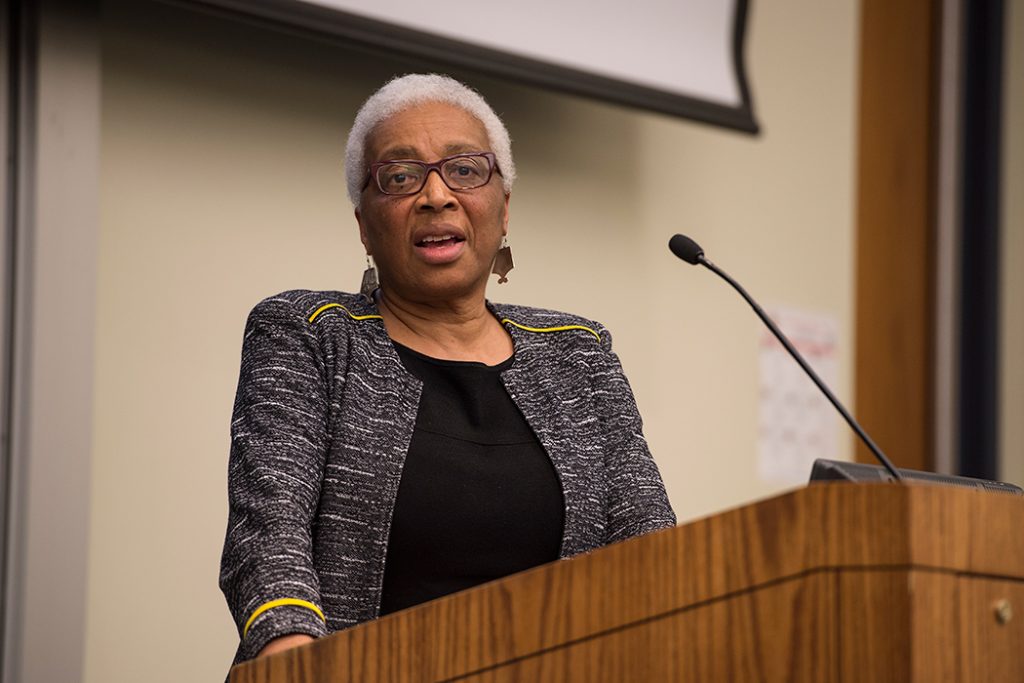Massachusetts Supreme Judicial Court Justice Geraldine Hines (pictured) and members of the SJC’s Pro Bono Standing Committee, which recently heard faculty and a student panel discuss the Law School’s pro bono initiatives, praised the community’s strong commitment to service.
Justice Hines expressed her admiration for the passion and dedication of the student presenters. “A spark can turn into a flame that can continue to burn throughout your legal careers,” she said. “I hope your experience will lead you to find ways to continue to do that work. The things that you will be called to do are important for the people who need your contributions.”
Michelle Grossfield, associate director of Public Interest and Pro Bono Programs at the Law School, stressed that the pro bono program was created by students. “Its strength continues to come from students’ dedication and commitment to provide vital legal services to underrepresented individuals and communities,” she said.
The February 22 event, sponsored by Career Services and the Public Interest and Pro Bono Programs, included presentations by alumna Kathleen McGrath ’88, senior corporate counsel for Liberty Mutual Insurance and standing committee chair, Dean Vincent Rougeau, and Professor Alan Minuskin. “Pro bono work begins at the school [level],” McGrath said. “The law can be a powerful tool for good.”
Professor Minuskin concurred, saying that pro bono work in school “gives students much more of an education, not only in the skills that make them a better lawyer, but it attunes them to the importance to the professional obligation to create better access to justice.”
Students at the event represented such campus organizations as the Immigration Law Society and Lawyer for a Day Program, and many were participants in the spring break pro bono trips to the Navajo Nation, New Orleans, and other destinations in the US and abroad.
Although their individual experiences differed, the students agreed that their time spent in service was valuable and a gateway to future opportunities. “This trip fosters for students an interest in immigration law that many already have, and for some students who were just curious,” said third-year student Yoni Bard, who participated in the Immigration trip to Harlingen, Texas. “It also leads to much greater opportunities within the school and professionally.”
Lucy Wolfe, a 2L, described her experience volunteering for the Navajo Nation’s department of justice, district court, and supreme court. “The supreme court has only two full-time staff members,” she said. “We were immediately given our cases and an important workload. Pro bono is important because young lawyers get to do really substantive work.”
Catherine DeLanzo, another 2L representing the Boston Spring Break program, discussed her housing authority work, explaining that the skills in research, writing, and applying the substantive law she learned in her classes proved invaluable. “It was a really good feeling to help out in these difficult situations,” she said. “It’s one thing to read about horrible cases in your textbooks, but to actually have the opportunity to go out and do something about it makes you feel engaged in doing good work for individuals and the community.”


